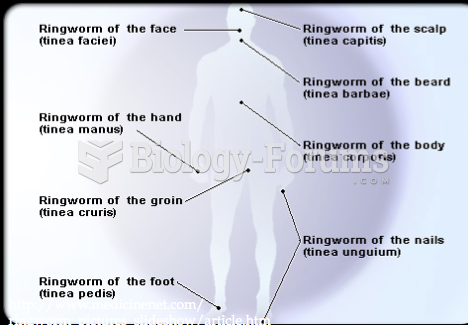|
|
|
In 2006, a generic antinausea drug named ondansetron was approved. It is used to stop nausea and vomiting associated with surgery, chemotherapy, and radiation therapy.
The most common treatment options for addiction include psychotherapy, support groups, and individual counseling.
Vaccines prevent between 2.5 and 4 million deaths every year.
Though newer “smart” infusion pumps are increasingly becoming more sophisticated, they cannot prevent all programming and administration errors. Health care professionals that use smart infusion pumps must still practice the rights of medication administration and have other professionals double-check all high-risk infusions.
By definition, when a medication is administered intravenously, its bioavailability is 100%.






